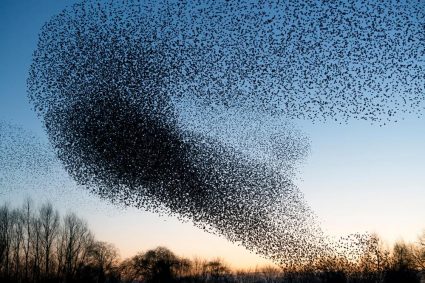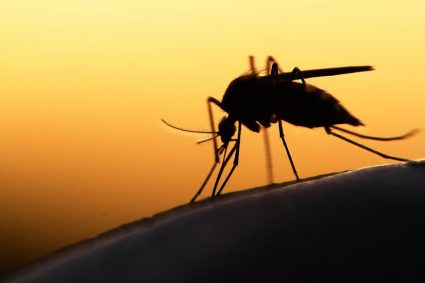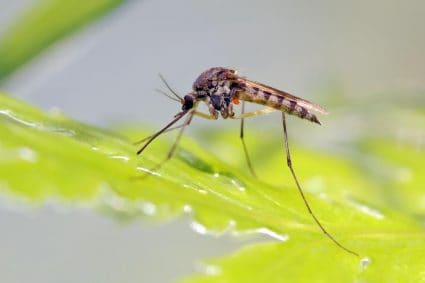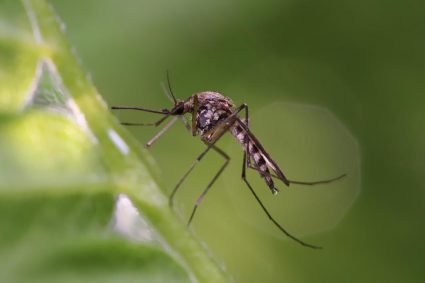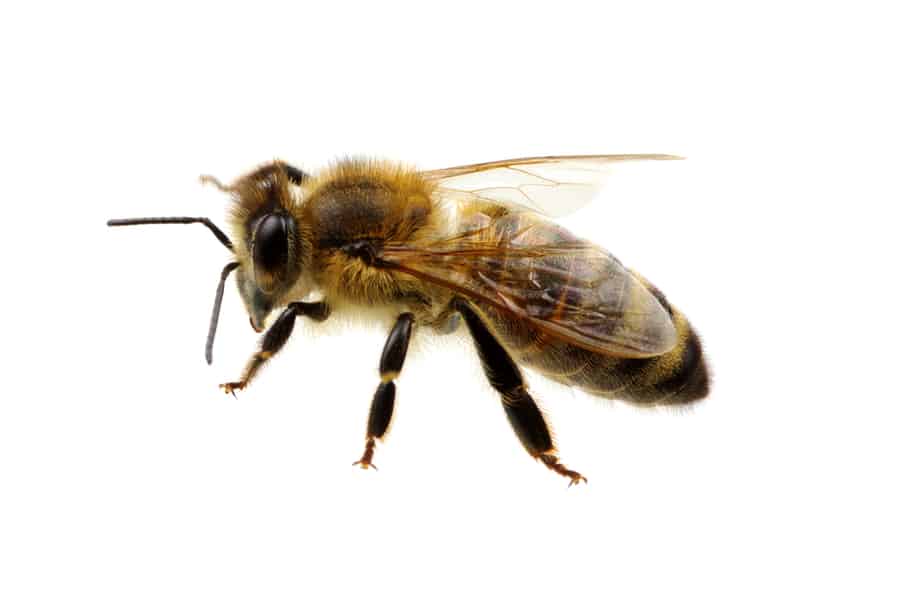
If you are a fan of camping, you likely enjoy spending time and exploring the outdoors.
Nature is great, and there is nothing better than hiking, biking, or sitting around a campfire.
However, it is easy to be put off by the thought of bees invading your camping area and causing trouble.
Bees have a crucial role in pollinating plants by moving from blossom to flower and gathering food to return to their hives. There is no way to completely avoid these insects, making them part of your camping and outdoor activities.
Thankfully, there are steps you may take to prevent bees from gathering around your camp.
First, understand that bees often invade your space when they scent something they like. They will want to stay once they realize your campsite has something to offer.
So it’s essential to take some defensive mechanism to prevent them from showing up.
These include:
- Choosing the right location.
- Maintaining hygiene and sealing food and waste items.
- Avoiding anything inviting, such as brightly colored clothing or toiletries with a strong scent that will draw their attention.
Make your camping experience enjoyable and keep your campsite bee-proof with these tips.
Ensure to follow camping protocols when dealing with food and dispose of trash or lighting campfires.
6 Steps To Keep Bees Away From Campsite
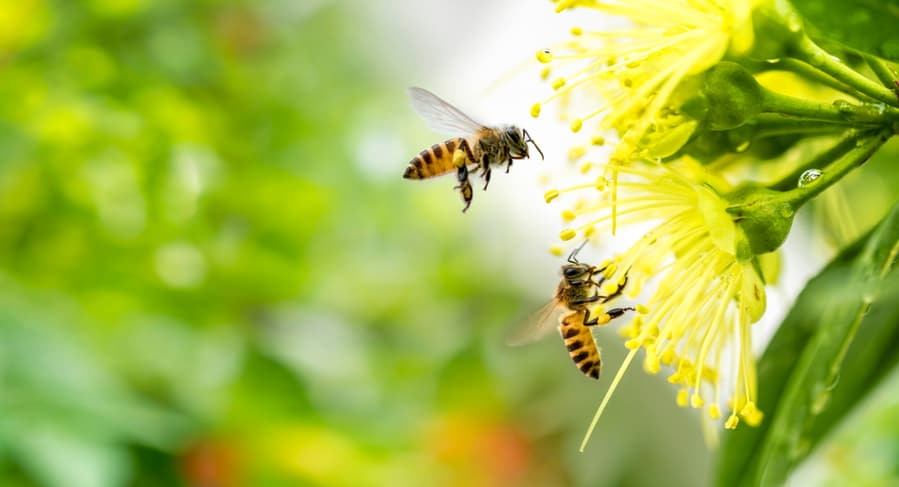
Bees are beneficial to our environment and are a part of our outdoors.
It’s time to repel or entice them to an area away from your campsite if their numbers have significantly increased to avoid agitating them.
There are several risk-free ways to keep these helpful insects at bay without getting rid of them:
1. Choose a Favorable Location
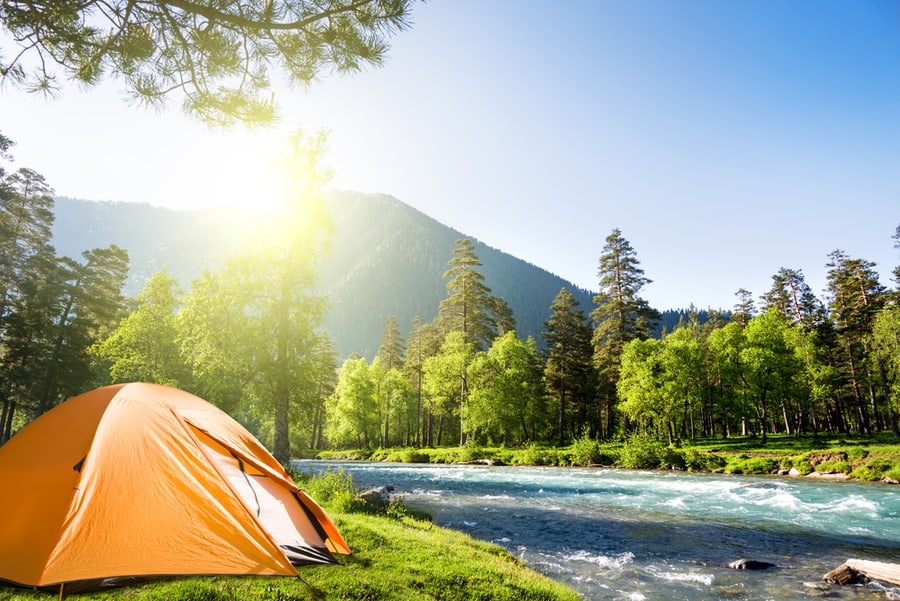
Because of the picture drop, setting up camp next to bodies of water like river banks and lakes may sound like an option.
However, setting camp at an appropriate distance is advisable because bees prefer low-lying wet areas.
Camping on an elevated surface ensures that the campsite is well-drained.
Check out for any trash cans around before you set up camp. This is because trash is a bee attraction, which might ruin your day.
Look around for beehives, or watch bees flying back and forth. Avoid such locations if you notice bees because it is probably their main route to the hives.
Bees like to hang out in grassy areas and places with abandoned buildings, so stay away from these regions.
2. Use Natural Bee Repellents Around the Campsite
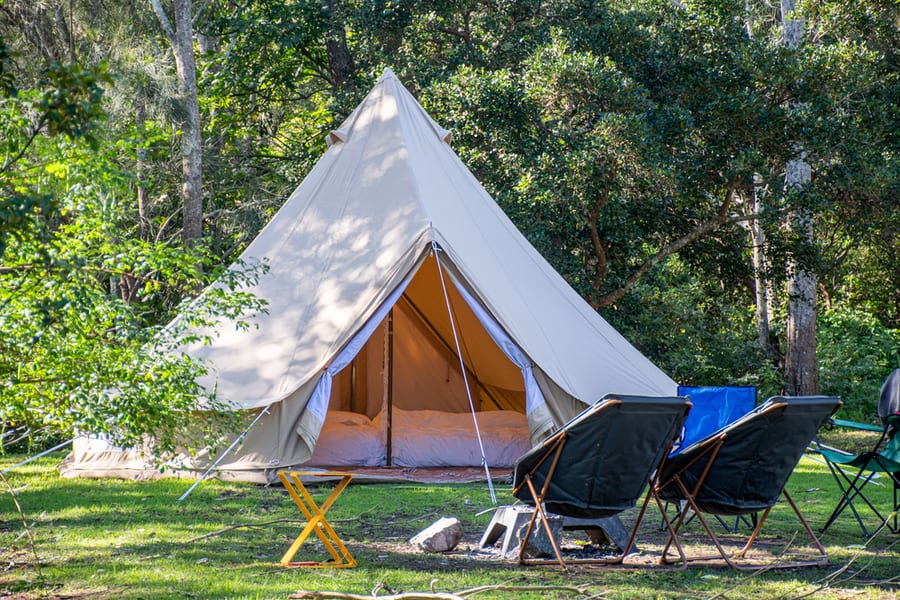
There are different food items, and essential oils, that deter bees and contain non-harmful chemicals.
Natural bee repellents are effective because they are pleasant to us humans, but bees dislike the scents.
They are also affordable and readily available.
Eucalyptus Oil
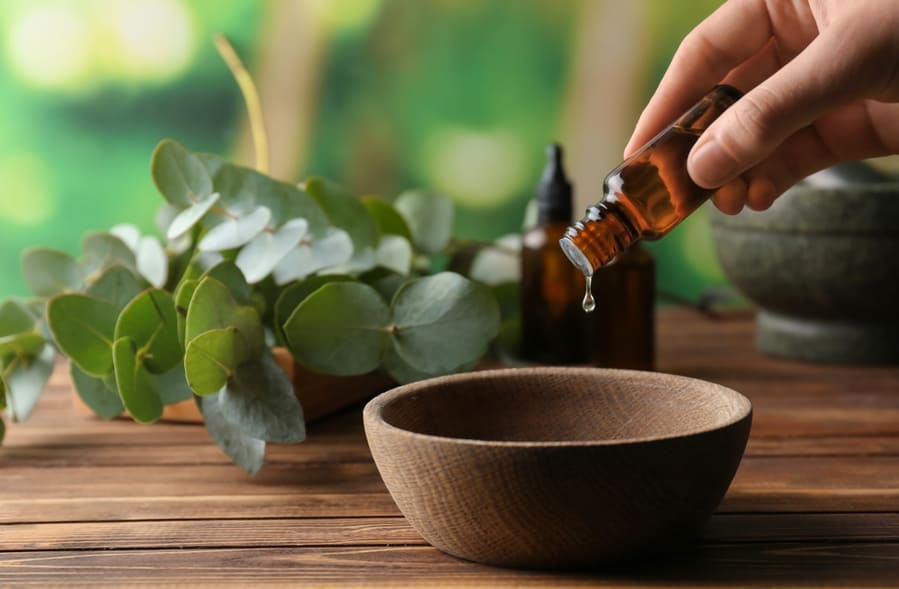
Bees detest essential oils with aromatic, unappealing scents.
Eucalyptus oil falls into this group and is a must-pack item when camping.
Apply a few drops of eucalyptus oil to your neck or wrists to repel bees.
You can also dilute a few drops with water and mist it around the camp.
Vanilla Extract
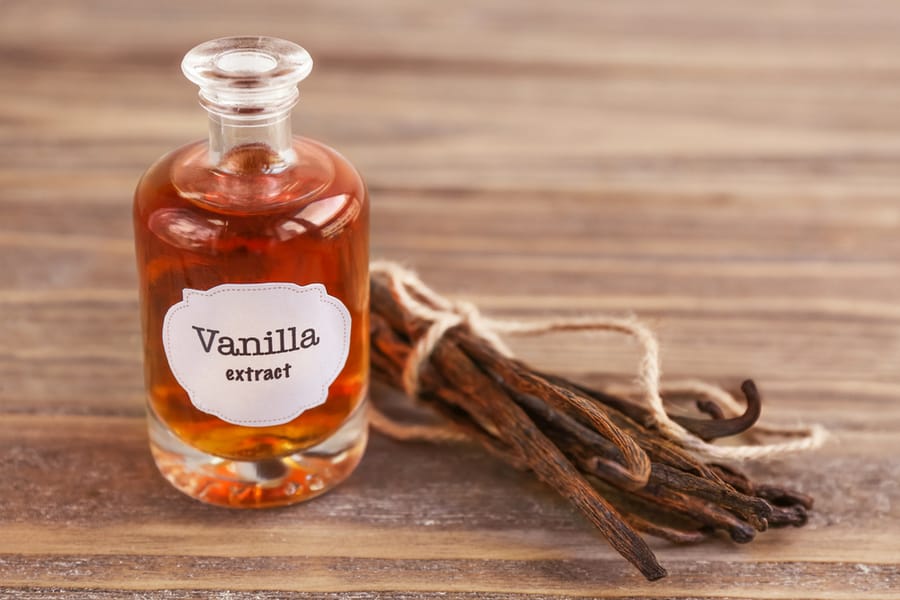
Pure vanilla extract sweetens baked items and has an overpowering scent.
It also doubles as a bee repellent.
To use, dilute it with a few drops of water before dabbing it on your skin at the wrist, chin, and ears.
Citrus Fruits
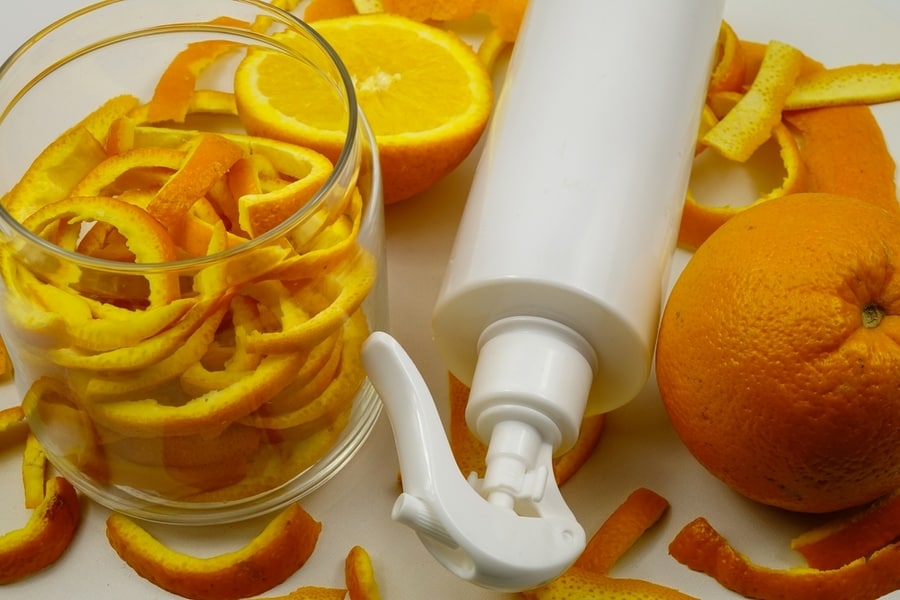
While most fruits entice bees, citrus fruits act as repellents.
Boil citrus fruit peels in water, let it cool, filter, and pour in a spray bottle.
Spray it all over to bee-proof your campground.
Garlic
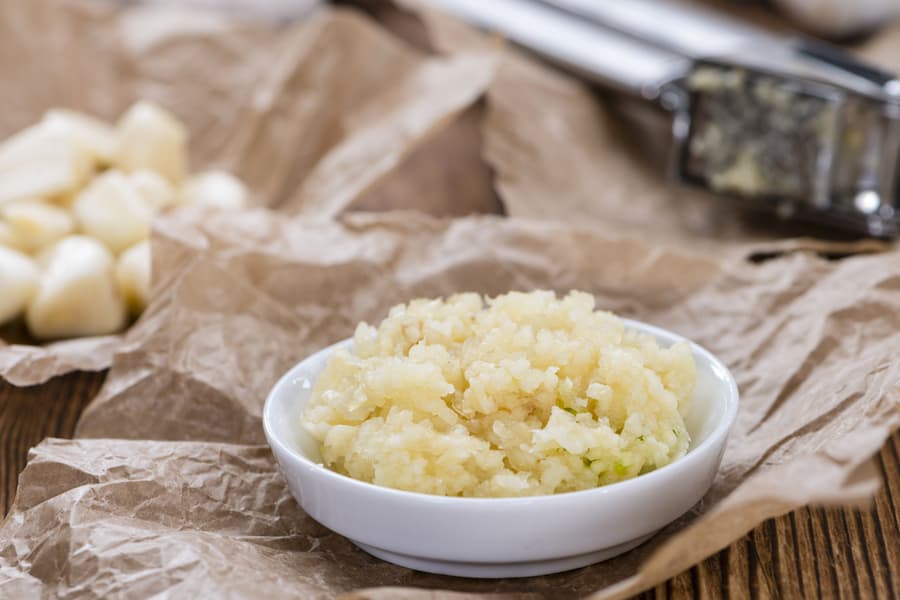
Bees dislike the strong scent of garlic, but it’s a great food additive.
Crushing garlic cloves work best in keeping bees at bay.
You can place crushed garlic or cloves on your picnic table and use them in your cooking.
Distilled Vinegar
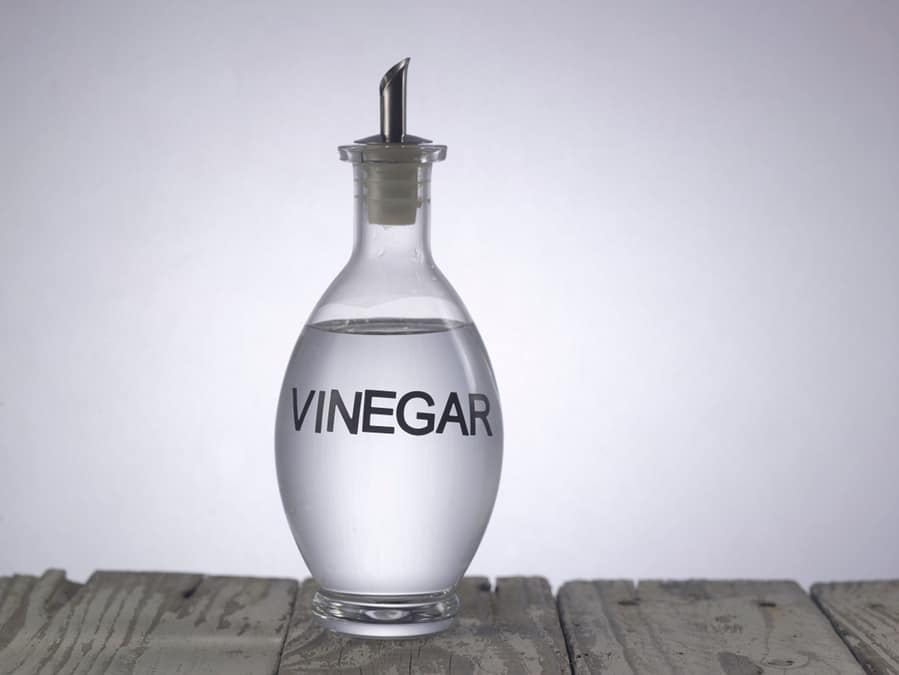
Using vinegar masks the smell of sweeter scents you might have around your campsite because of its strong smell.
Simple measures like leaving an open cup of distilled vinegar on your picnic table or around your camp help keep bees away.
Dryer Sheets
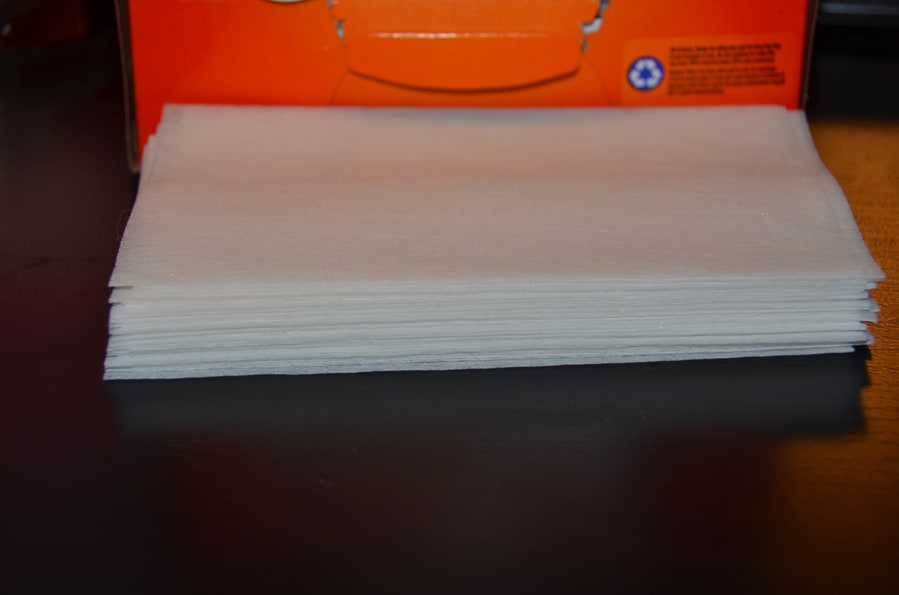
Place some dryer sheets around your sitting area.
Or hang them by punching a hole at the end of the sheet and threading a string through it to create a hanger.
3. Maintain Cleanliness and Cover All Your Supplies
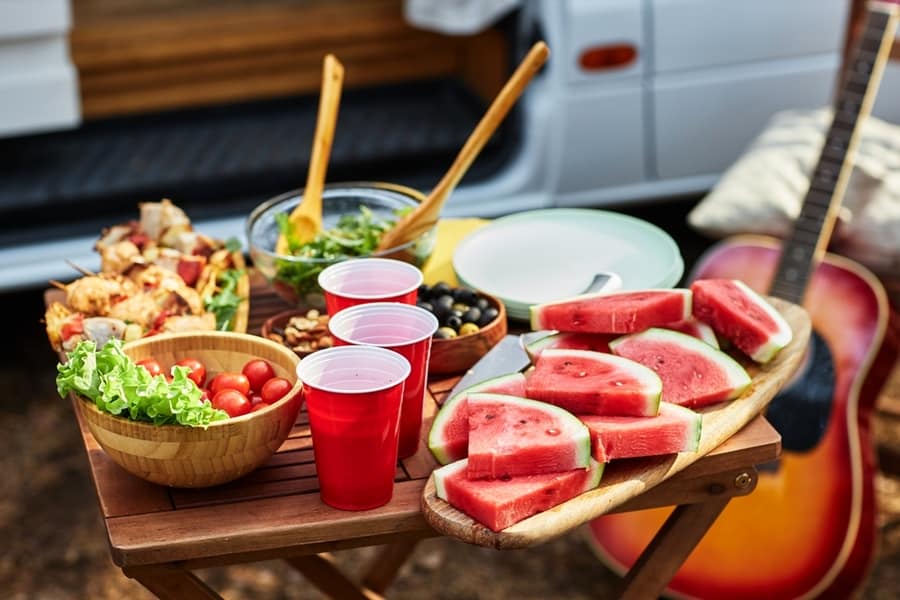
Bees will accept the scents of barbecue and food as an open invitation to visit you. As a result, keeping your campsite and the area around it clean deters these unwelcome guests.
Clean up any food remains, tidy up, and seal all of your supplies in zip-lock bags or cool boxes right away after eating. Go a step further to store food away from your tent, like in the trunk of your car.
Bees are efficient at spotting food from a distance. To avoid their distraction, ensure you only set the picnic table when it is time to eat.
Alternatively, prepare a bait that will draw bees away from you. Mix one cup of soda, one cup of sugar, a cup of fruit juice, and maple syrup in a large disposable plastic bottle that you half-fill with water.
Shake well, set it up a few meters from your camp area and wait 30 minutes for the bees to detect and gather around it. No bee can resist its sweetness, which distracts and keeps them away from your camp area.
Placing some mint leaves or marigold flowers on your table masks the scent of food and helps keep bees away.
Prevent bees from smelling your sweet food, fruits, and desserts by placing a tight cover on your containers. For sweet drinks, using clear plastic cups and discarding them keeps you from getting stung by making it easier to spot bees in case they get inside.
A single soda can that you discard in the trash is enough to attract a swarm of bees. Keep rubbish in an airtight trash can to keep these little critters away from your campground.
Also, securing the lids of your trash cans helps prevent bees from sniffing your garbage. With time, food leftovers and fruit peels degrade.
Even a short time—a few hours—of trash warming in a trash bag can mix an enticing smell that will attract bees.
So, instead of just using an open plastic bag, contain your waste in a trash can with a cover, and dispose of it in the enclosed bins that the camp management provides.
4. Start a Campfire
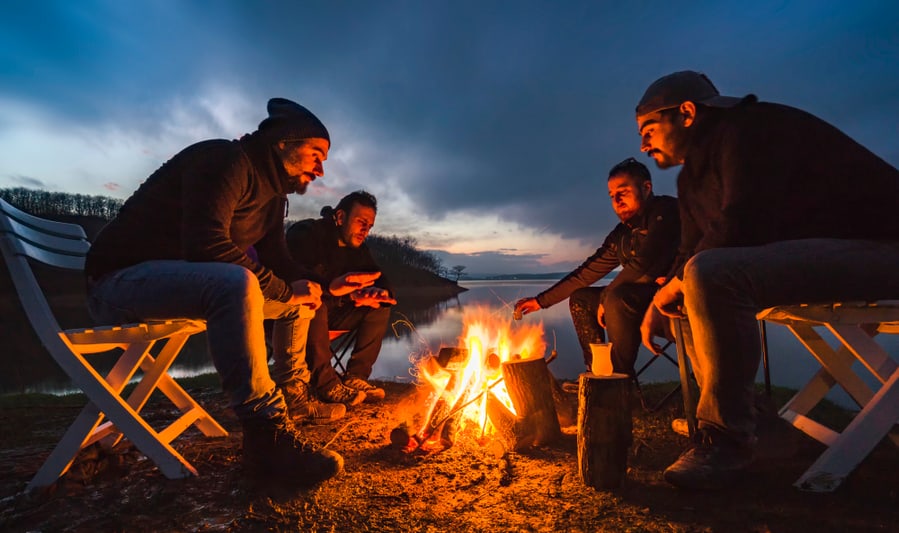
Light a campfire if your site management permits.
Smoke always does an excellent job of repelling bees by causing them to release hormones, so they will only be concerned with their survival.
Besides the fun you experience sitting around a campfire, this also keeps bees away.
If your campsite management doesn’t allow campfires, lighting a barbecue serves the same purpose.
Throw in a bunch of sage to the fire to add insect-repelling power. Burning the dried leaves of the sage herb releases a potent scent that drives bees away.
Gather a few stems from your sage plant at home, and dry them a few weeks before your trip. Strip the leaves and tie them together in bundles that you can use each night of your camping trip.
Ensure you have experience lighting a campfire and ask camp guides for help if necessary.
Keeping to burning things—lighting citronella candles also serves as a deterrent. Citronella candles produce less smoke and burn for longer.
Place one on your picnic table and avoid lighting them inside your tent.
5. Avoid Bold Patterns and Vibrant Colors
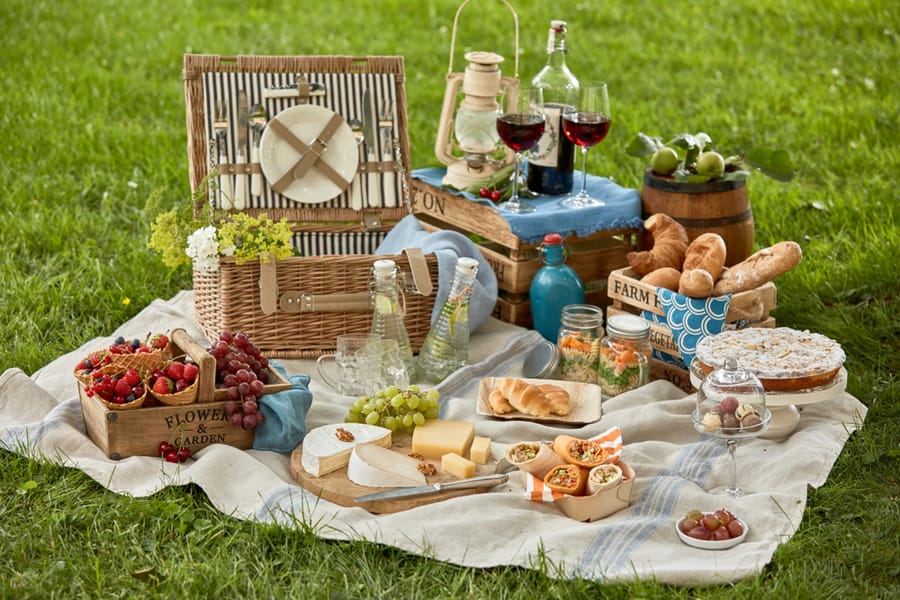
Bees will gather around your location if they see floral patterns since they perceive them as flowers.
Consider the color and texture of the clothing when packing. Pick light hues like white over vivid ones like red or brown. These colors make an object appear like a natural predator, which agitates bees.
Striking patterns, particularly floral ones, attract bees. Use simple colors for the picnic blankets or tablecloths.
White is the best color for plates and napkins, but if you choose colored or floral-patterned ones, mask their scent as a safety measure to prevent bees from smelling.
6. Get Rid of Everything That Has a Floral or Sweet Scent
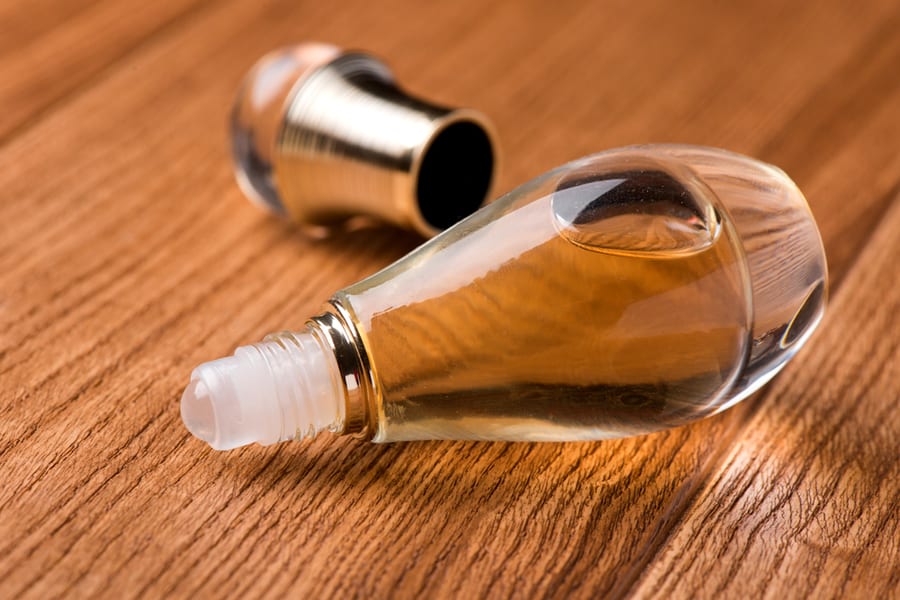
Not just colors attract bees, but smells are also great attractants. Bees can pick up a scent from far distances, and fruity and floral fragrances are what they love most.
Avoid products with sweet scents, including shampoos, deodorants, lotions, and soaps, and opt for the ones with mild scents.
Even fabric softener and scented detergent will attract bees to your clothing. Therefore, sweet scents are likely around if you see bees coming to you at the campsite.
Conclusion
Being in a battle with bees is tiresome and risky, especially if they keep coming after you repel them.
Let’s review the 6 strategies that help keep bees away from the campsite:
- Select a suitable camp location away from a wet and low-lying environment.
- Use natural repellents (eucalyptus oil, dryer sheets, vinegar, vanilla, citrus fruits, garlic, etc.).
- Maintain cleanliness around the camp area (cover food & trash).
- Light a campfire.
- Avoid vibrant colors and bold patterns.
- Get rid of floral fragrances.
To achieve victory over bees, combine all these methods and stay a happy camper.
Frequently Asked Questions
What Color Tent Attracts Bees?
Yellow attracts bees, which they frequently mistake for flowers. However, because bees see dark colors like red or black as natural predators, this might trigger them to attack in defense.
What Time of Year Are Bees Most Active?
Bees’ activity is at its peak between March and June. Winter ends in March, but the adult bee populations are also at their lowest.
The queen, during this time, increases her egg production with a short food supply. Because of this, bees are at the highest risk of starvation in March.
Although April can be a cold month, this is when flowers blossom, and the bee season begins with the first bees gathering nectar.
Hives experience rapid population growth in May when nectar collecting is at its peak. Bees prepare to swarm, with the queen and a portion of the colony separating to look for a new area to establish a new hive.
As they search for the perfect location for their new hive, they swarm onto a branch and wait while creating a colony and gathering nectar. Throughout June, bee production continues.
While nectar collection continues, bee production slows down in July. In August, activity outside the hive drastically reduces, and by September, bees practically disappear.


